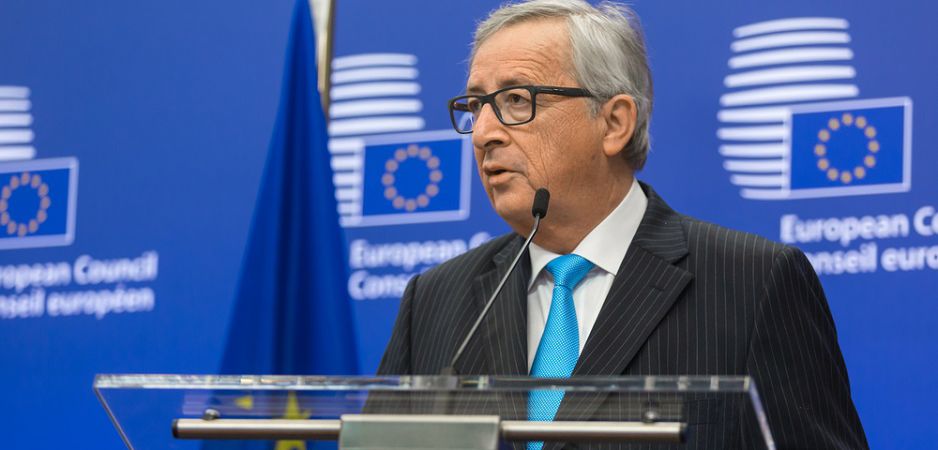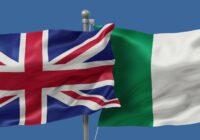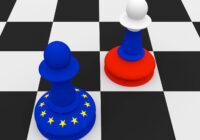Former Irish Prime Minister John Bruton reflects on Jean-Claude Juncker’s recent speech at the European Parliament.
On September 13, European Commission President Jean-Claude Juncker delivered a speech to the European Parliament. He stressed what he called European values and singled out three in particular: the rule of law, equality and the freedom to voice your opinion as a citizen or a journalist.
The discussion on the rule of law is important in light of what is happening in Poland. The European Union is facing a long and difficult confrontation with that country, and the Polish government will whip up nationalist sentiment. But the EU must not back down.
In this context, he also mentioned how important it is that the rulings of the European Court of Justice are accepted as final and implemented by all member states. Without this, the EU would wither away. This is being called into question in Poland and Hungary in respect of accepting refugees.
On equality, Juncker stressed that there should be equal pay for equal work in the same countries. This is a concern of French President Emmanuel Macron.
I am glad that freedom of speech was also discussed. Freedom of speech is important if we are not to see democracy turned into the tyranny of the majority. Prevailing opinions must be open to challenge, and sometimes that may give offence or be misconstrued. Those who are offended have the right of reply, and if someone is libeled they can go to court. Apologies for mistakes in the use of free speech should, in general, be accepted.
Journalists should not be forced out of their jobs to serve the commercial interests of advertisers who have come under pressure from social media. That is happening in Ireland at the moment and can be just as much a threat to free speech today as state censorship was in the past.
OTHER ISSUES
I am glad that President Juncker mentioned a European deposit insurance scheme to help make banks safe, but there should also be a limit placed on banks buying too many bonds from their own government, which can lead to dangerous concentration of risks.
He stressed the strengthening of Europe’s defenses against cyberattacks. Apparently, 4,000 ransomware attacks are made every day in the EU. Juncker also talked about the need for a better defense against state-inspired and organized cyberattacks of the kind suffered by Ukraine and Estonia. Ireland should play its part, through the EU and the NATO partnership for peace — of which it is a member — in working to strengthen Europe’s cyber defenses. In the cyber world, the fact that Ireland is an island is no defense and will be even less so when the United Kingdom leaves the EU.
I agree with Juncker’s support for having some members of the European Parliament elected on an EU-wide list. That would be a small step — through the debate it would engender — toward creating a Europe-wide informed public opinion
As I pointed out in a recent speech in Cahirciveen, Ireland, there are huge differences between EU states’ voters in their views on what the union should prioritize, and little understanding of other countries’ needs and fears. An election campaign in which every voter would choose between different European parties on the basis of their programs would help build a sense of ownership of the EU by all voters of Europe and a better understanding of what the EU is and is not capable of doing.
But I am not keen on Juncker’s idea of merging the roles of president of the European Council and that of president of the European Commission. The commission is the guardian of the treaties, whose provisions it must uphold without fear or political bias. The council is a political body, which, with the European Parliament, must make political judgments on commission proposals. That separation should not be changed.
Some division of powers is appropriate to a confederal union, like the EU. The European Union is not a state and is not going to become one. The fact that the UK can leave it proves that the EU is a voluntary union, unlike the United States of America.
TAX MATTERS
I was surprised to hear Juncker propose to move policymaking on tax matters to majority voting. This would mean that big countries could set the tax policies of small countries, which is not acceptable. It would alter the balance of the EU fundamentally. On the face of it, this would seem to require an amendment of the EU treaties. President Juncker seemed to suggest that majority voting on tax policy could be achieved by using a passarelle provision in the Lisbon Treaty, which allows some issues, currently decided by unanimity, to be moved to majority voting by the unanimous agreement of all EU heads of government (without actually amending the treaties).
I am satisfied that this agreement will not be forthcoming and that the proposal to move tax policy to qualified majority voting (QMV) will not go far. In light of the 1986 Crotty judgment on the constitutionality of the Single European Act, it is likely that demands would be made for a referendum in Ireland on a move to majority voting on tax policy.
The European Council gave the following assurance about the interpretation of the effect of the Lisbon Treaty to the Irish people in June 2009: “Nothing in the Treaty of Lisbon makes any change of any kind, for any member state, to the extent or operation of the competence of the European Union in relation to taxation.” The European Commission would be prudent to take special note of this in pursuing this aspect of President Juncker’s agenda.
The views expressed in this article are the author’s own and do not necessarily reflect Fair Observer’s editorial policy.
Photo Credit: Drop of Light / Shutterstock.com
Support Fair Observer
We rely on your support for our independence, diversity and quality.
For more than 10 years, Fair Observer has been free, fair and independent. No billionaire owns us, no advertisers control us. We are a reader-supported nonprofit. Unlike many other publications, we keep our content free for readers regardless of where they live or whether they can afford to pay. We have no paywalls and no ads.
In the post-truth era of fake news, echo chambers and filter bubbles, we publish a plurality of perspectives from around the world. Anyone can publish with us, but everyone goes through a rigorous editorial process. So, you get fact-checked, well-reasoned content instead of noise.
We publish 2,500+ voices from 90+ countries. We also conduct education and training programs
on subjects ranging from digital media and journalism to writing and critical thinking. This
doesn’t come cheap. Servers, editors, trainers and web developers cost
money.
Please consider supporting us on a regular basis as a recurring donor or a
sustaining member.
Will you support FO’s journalism?
We rely on your support for our independence, diversity and quality.






